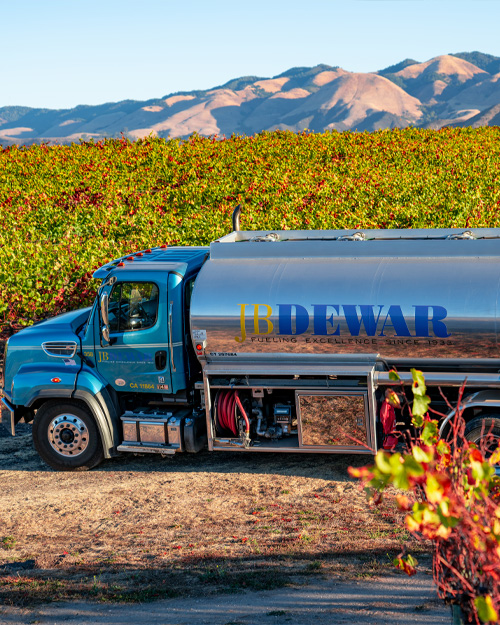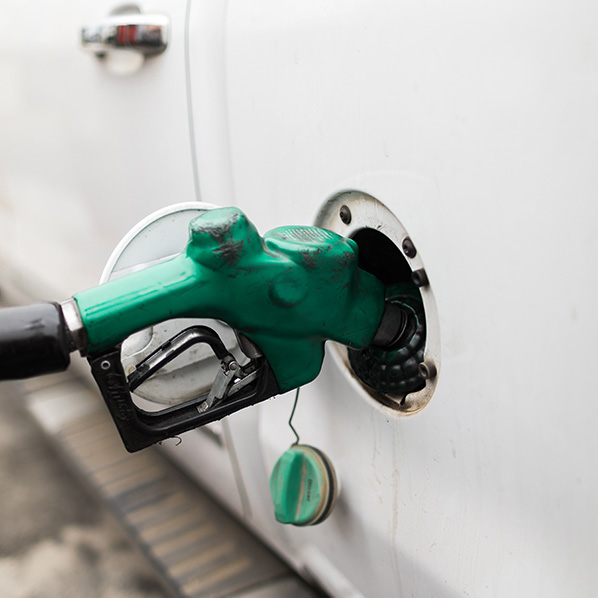What is Renewable Diesel?

Renewable diesel is very similar in chemical makeup and combustion properties when compared to traditional petroleum-based diesel fuels but renewable diesel is made from renewable resources such as fats and soybean oil or canola oil. Renewable diesel can be used directly in existing diesel engines as a “drop in” replacement, without engine modifications and is 100% compliant with ASTM D975 in the United States and EN 590 in Europe. While renewable diesel can be used as a direct replacement for petroleum diesel it can also blended with petroleum-based diesel fuel.
Renewable Diesel vs Biodiesel
Renewable diesel and biodiesel are not the same!
While renewable diesel and biodiesel fuels are both made from renewable resources, renewable diesel is fundamentally different from biodiesel and has substantially different chemical properties.
Key Characteristics and Benefits of Renewable Diesel Fuel
- Chemically Identical to Petroleum Diesel: Renewable diesel is hydrotreated to remove oxygen and produce a hydrocarbon that is chemically indistinguishable from traditional diesel. This process ensures compatibility with current diesel engines and infrastructure.
- Feedstock: Renewable diesel can be produced from various feedstocks, including vegetable oils (such as soybean or canola), animal fats, used cooking oils, and other waste fats and greases.
- Greenhouse Gas Emissions: Using renewable diesel significantly reduces greenhouse gas emissions compared to petroleum diesel. The exact reduction depends on the feedstock and production process, but harmful emissions can be reduced by as much as 80%.
- Performance: It offers similar or better performance compared to traditional diesel, including high cetane numbers, better combustion properties, and reduced emissions of particulates, carbon monoxide, and unburned hydrocarbons.
- Sustainability: Renewable diesel supports a circular economy by utilizing waste products and non-food crops, thereby reducing reliance on fossil fuels and contributing to waste reduction.
Production Process
Renewable diesel is produced through a process called hydrotreating. This involves reacting the feedstocks with hydrogen at high temperatures and pressures to remove oxygen and other impurities, resulting in a pure hydrocarbon product. The process can be summarized as follows:
- Feedstock Preparation: Raw materials are collected and pre-treated to remove impurities.
- Hydrotreating: The prepared feedstock is mixed with hydrogen and heated under high pressure. This process breaks down the feedstock into simpler hydrocarbons, removing oxygen in the form of water.
- Separation: The resulting mixture is separated into different components, including renewable diesel and other by-products.
- Refinement: The renewable diesel is further refined to meet the required specifications for fuel.
Applications and Market
- Transportation: Renewable diesel can be used in all diesel-powered vehicles, including cars, trucks, buses, and marine vessels.
- Industrial Use: It is also suitable for use in generators and other industrial equipment that relies on diesel engines.
- Regulatory Support: Governments and regulatory bodies are increasingly supporting renewable diesel through incentives and mandates, such as California’s Low Carbon Fuel Standard (LCFS) and the Renewable Fuel Standard (RFS) in the United States.
Challenges and Future Outlook
- Feedstock Availability: The availability and cost of feedstocks can be a limiting factor in the production of renewable diesel. Ensuring a sustainable and consistent supply of raw materials is crucial.
- Production Costs: While the production costs of renewable diesel are currently higher than those of petroleum diesel, technological advancements and economies of scale are expected to reduce costs over time.
- Infrastructure Development: Expanding infrastructure for the production and distribution of renewable diesel is necessary to support its wider adoption.
Overall, renewable diesel fuel represents a promising solution for reducing greenhouse gas emissions and dependence on fossil fuels, while offering a direct substitute for traditional diesel that can seamlessly integrate into existing systems.
Renewable Diesel FAQ?

What is Renewable Diesel?
Renewable Diesel is a clean-burning, sustainable fuel made from renewable resources like vegetable oils, animal fats, and waste greases. It is chemically identical to petroleum diesel but produces fewer greenhouse gas emissions and pollutants.
How is Renewable Diesel different from Biodiesel?
While both fuels are derived from renewable sources, Renewable Diesel is fully compatible with conventional diesel engines without modification, whereas biodiesel is typically blended with petroleum diesel and may have compatibility limits in higher blends.
Can I use Renewable Diesel in my current diesel engine?
Yes, Renewable Diesel can be used in any diesel engine without modifications. It meets the same ASTM D975 specifications as petroleum diesel and provides similar performance.
What are the environmental benefits of Renewable Diesel?
Renewable Diesel reduces greenhouse gas emissions by up to 80% compared to traditional diesel. It also lowers particulate matter, nitrogen oxides (NOx), and other pollutants, contributing to cleaner air and a smaller carbon footprint.
Does Renewable Diesel impact engine performance or fuel economy?
Renewable Diesel offers comparable performance and fuel efficiency to petroleum diesel. In some cases, it can even provide better combustion, leading to cleaner engines and longer maintenance intervals.
